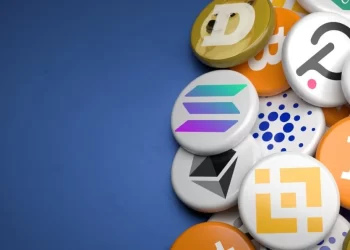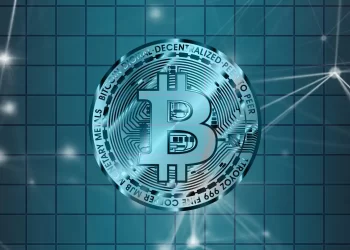Ethereum is an open source, blockchain-based distributed computing platform that provides a decentralized virtual machine, the Ethereum Virtual Machine (EVM). It is the second-largest cryptocurrency platform by market capitalization, after Bitcoin. Ethereum is used for developing and running decentralized applications (dApps) on the Ethereum blockchain. It is an exciting new technology, and with it comes the potential to revolutionize many industries and everyday life.
In this guide, we’ll explore the potential of Ethereum and how it works. We’ll also look at how to use the platform, including Ethereum wallets, smart contracts, mining, and dApps. We’ll also discuss how to stay safe while using Ethereum, so you can make the most of this revolutionary technology.
What is Ethereum?
Ethereum is an open source blockchain-based distributed computing platform created in 2015 by Vitalik Buterin. Ethereum is used to develop and run decentralized applications (dApps). These applications are built on blockchain technology and run on a global network of computers, eliminating the need for central control and allowing users to interact directly with each other in a trustless manner.
The Ethereum platform is powered by Ether, the native cryptocurrency of the network. Ether is used to pay for transaction fees and services on the network. It can also be used as a form of digital currency, allowing users to buy and sell goods and services.
The Ethereum Virtual Machine (EVM) is the core of the Ethereum platform. It is a decentralized virtual machine that can execute code of arbitrary algorithmic complexity. The EVM allows developers to create decentralized applications that can run on the Ethereum network without the need for a central server or administrator.
What can Ethereum do?
The potential of Ethereum is vast. It can be used to create decentralized applications, smart contracts, and even blockchain-based financial services. With Ethereum, users can also store, track, and transfer digital assets, such as Ether and other cryptocurrencies.
The Ethereum platform also allows developers to create custom tokens, which are digital assets that can represent anything from stocks to loyalty points. These tokens can be used to create decentralized exchanges, where users can trade assets without the need for a central authority.
Ethereum can also be used to create digital identities, allowing users to securely store and manage personal information. This can help with identity verification and authentication, as well as providing access to secure online services.
Advantages of using Ethereum
Ethereum has several advantages over traditional methods of doing business. Firstly, it is a trustless system, meaning that users can trust the platform to execute transactions without the need for a third party. This eliminates the potential for fraud and reduces the cost of transactions.
The Ethereum platform is also highly secure, thanks to its use of cryptography and blockchain technology. This makes it difficult for hackers to access personal information or steal funds.
Finally, Ethereum is decentralized, meaning that it is not controlled by any one entity. This makes it resistant to censorship and manipulation, allowing users to interact with each other in a secure and trustless manner.
How to get started with Ethereum
Getting started with Ethereum is simple. All you need is a computer and an internet connection. The first step is to download a wallet. This is where you will store your Ether and other digital assets. There are several wallets available, including desktop, hardware, and mobile wallets.
Once you have a wallet, you will need to purchase some Ether. This can be done through a cryptocurrency exchange or through a peer-to-peer marketplace. Once you have some Ether, you can start using the Ethereum platform to develop and run applications.
Ethereum wallets
Ethereum wallets are used to store Ether and other digital assets. There are several types of wallets available, including desktop, hardware, and mobile wallets. Each type of wallet has its own advantages and disadvantages, so it is important to choose one that meets your needs.
Desktop wallets are the most secure type of wallet. They are usually free to download, and can be used to store Ether and other digital assets. However, they require a computer with internet access to use.
Hardware wallets are also secure, and are designed to be used on hardware devices such as USB sticks. They are usually more expensive than desktop wallets, but they provide an added layer of security.
Mobile wallets are the least secure type of wallet, but they are the easiest to use. They are usually free to download, and can be used on smartphones and tablets.
Ethereum smart contracts
Smart contracts are programs that run on the Ethereum blockchain. They are used to automate transactions and enforce agreements between two or more parties. Smart contracts are stored on the blockchain and are immutable, meaning that they cannot be changed or deleted.
Smart contracts are created using a programming language called Solidity. This language is used to write code that defines the terms and conditions of the contract. Once a contract is created, it is stored on the blockchain and can be accessed by anyone.
Smart contracts can be used to create a variety of decentralized applications, such as insurance policies, financial services, and digital identity solutions. They can also be used to create tokens, which are digital assets that can represent anything from stocks to loyalty points.
Ethereum mining
Ethereum mining is the process of verifying and adding transaction data to the Ethereum blockchain. Miners earn rewards in the form of Ether for each block they mine. The process of mining is complex and requires specialized hardware and software.
In order to mine Ethereum, miners must have access to a computer with an internet connection and a mining rig, which is a specialized piece of hardware designed for the task. The mining rig will need to be connected to the Ethereum network, and miners will need to download and install mining software.
Once the mining rig is set up, miners can start mining Ethereum blocks. They will be rewarded in Ether for each block they successfully mine.
Ethereum dApps
Decentralized applications (dApps) are applications that run on the Ethereum blockchain. They are similar to traditional web applications, but they are built on blockchain technology and run on a global network of computers, eliminating the need for central control.
dApps are used for a variety of purposes, including finance, online gaming, and digital identity solutions. They are also used to create tokens, which are digital assets that can represent anything from stocks to loyalty points.
In order to create a dApp, developers must have access to a computer with an internet connection and the necessary coding skills. They must also have a good understanding of the Ethereum platform and its features.
How to stay safe while using Ethereum
When using Ethereum, it is important to take certain precautions to ensure your safety. Firstly, you should always use a secure wallet to store your Ether and other digital assets. You should also use a reliable and secure exchange to purchase Ether.
It is also important to use strong passwords and two-factor authentication whenever possible. This will help to protect your funds and personal information. Finally, you should never share your private keys with anyone.
Conclusion
Ethereum is an exciting new technology with the potential to revolutionize many industries and everyday life. In this guide, we’ve explored the potential of Ethereum and how it works. We’ve also looked at how to use the platform, including Ethereum wallets, smart contracts, mining, and dApps. Finally, we’ve discussed how to stay safe while using Ethereum, so you can make the most of this revolutionary technology.
Ethereum is an incredible technology, and with it comes the potential to revolutionize many industries and everyday life. If you are looking to unlock the potential of Ethereum, this guide is a must-read. So, what are you waiting for? Get started exploring the potential of Ethereum today!






